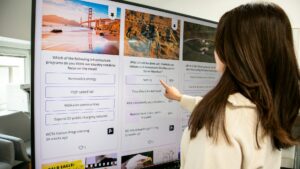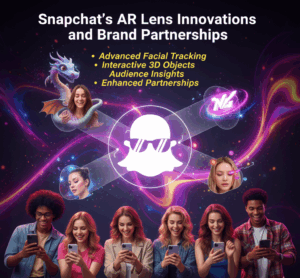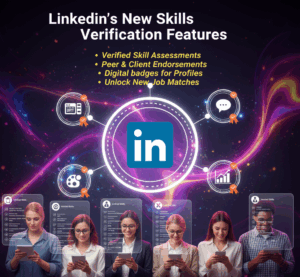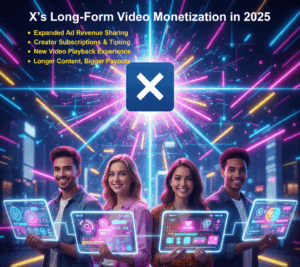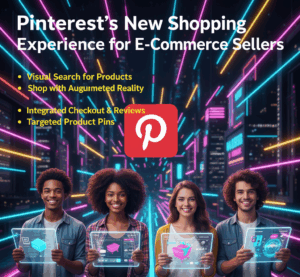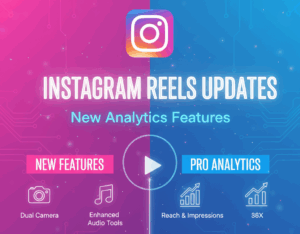The Function of Artificial Intelligence in the Targeting of Social Media Ads

The Function of Artificial Intelligence in the Targeting of Social Media Ads
There is no other place where the influence of artificial intelligence (AI) is more readily apparent than on social media platforms. AI has become the foundation of contemporary digital advertising. Platforms such as Facebook, Instagram, TikTok, and YouTube are no longer only digital billboards; rather, they have evolved into data-driven ecosystems that thrive on precise targeting. By the year 2025, artificial intelligence has completely revolutionized the way in which businesses communicate with their target audiences, making it possible to ensure that the appropriate material is sent to the appropriate individuals at the appropriate time. Instead of being a wide guessing game, advertising has evolved into a customized and predictive science as a result of this progress.
The Importance of Artificial Intelligence in Social Media Advertising
Every second, social media platforms are home to billions of users, each of whom generates an infinite number of interactions. Attempting to manually sort through all of this data is not feasible. Through the analysis of user behavior, preferences, and engagement patterns at a scale that humans could never accomplish, artificial intelligence helps to bridge this gap. This implies that marketers will be able to better segment their audiences, minimize the amount of money spent on advertising, and increase conversion rates.
1. AI’s Most Important Functions in Advertising Targeting 1. Audience Segmentation
The use of artificial intelligence allows for the segmentation of audiences into very precise groups based on demographics, hobbies, buying patterns, and even emotional signals. The use of artificial intelligence allows for the identification of specific subgroups, such as “urban millennials interested in plant-based supplements,” as opposed to targeting broad categories such as “fitness enthusiasts.”
2. Targeting based on predictions
Artificial intelligence is able to not only assess previous behavior but also forecast future behaviors. It is possible for computers to determine which consumers are most likely to react to a campaign by analyzing patterns of interaction and purchase histories. Because of this, companies are able to communicate with consumers before they even become aware that they need a product.
3. Dynamic Ad Personalization
Through the year 2025, customisation will no longer be a possibility. AI is able to personalize advertisements in real time, making adjustments to the picture, subtitles, or offers based on the viewer. A user who has recently looked for summer locations, for instance, may be shown with beach vacation packages by a travel business, while another user who is investigating weekend getaways may be presented with city tours.
4. Optimization in Real Time
Artificial intelligence is continually monitoring the effectiveness of campaigns, reallocating funding to advertisements that are doing better, and modifying targeting criteria. Consequently, this eliminates the need for marketers to speculate and guarantees that every dollar spent has the greatest possible effect.
5. Creation of Audiences That Are Similar
An artificial intelligence system may construct “lookalike” audiences by evaluating data from current consumers. These audiences are new users who have similar habits and interests. Small firms are able to expand more easily as a result of this, particularly since they do not need their own big databases.
Promotional Advantages for Advertisers and Brands
- Artificial intelligence helps to prevent wasted expenditure by ensuring that advertisements are shown to consumers who are more likely to convert.
- Deeper Insights: Businesses are able to obtain a better grasp of the factors that influence the choices of their customers.
- The use of automated procedures enables marketers to devote their attention on creative strategy rather than manual targeting, which results in time efficiency.
- Reaching a Global Audience: Translation and localization solutions driven by artificial intelligence enable firms to efficiently promote in a variety of countries.
In the year 2025, Real-World Applications
- AI is being used by retailers to forecast purchase cycles and provide timely discounts in the context of e-commerce.
- Streaming platforms are used to promote tailored trailers or present suggestions as advertisements in the entertainment industry.
- Within the realm of healthcare and wellness, clinics cater to patients who have particular health concerns by providing services such as telemedicine and exercising programs.
- When it comes to travel, airlines and hotels put dynamic price advertisements on the market depending on user searches and seasonal patterns.
Concerns and Obstacles of an Ethical Nature
There are a number of debates around AI-driven advertising targeting, despite the fact that it has several advantages:
- Users are becoming more worried about the amount of their data that is being collected and analyzed, which is part of the privacy concerns.
- The term “algorithmic bias” refers to the tendency of artificial intelligence models to inadvertently perpetuate prejudices or exclude specific populations.
- Oversight of legislation: Governments, particularly in the European Union, are increasing the stringency of legislation concerning the acquisition of data and targeted advertising.
- It is possible for highly tailored advertisements to seem intrusive, which might cause people to develop a mistrust of businesses.
The Prospects for Artificial Intelligence in the Field of Social Media Advertising Targeting
In the future, it is anticipated that artificial intelligence will be integrated with augmented reality (AR) and virtual reality (VR) advertisements, which will provide immersive marketing experiences. There will also be an increase in the use of voice and conversational AI in marketing initiatives, which will make advertisements seem less like advertisements and more like personal suggestions. For the purpose of preserving user trust, transparency and ethical AI practices will become more important as rules continue to develop.
The use of artificial intelligence has made social media advertising into a tool that is very accurate, adaptable, and predictive for companies. The advantages of artificial intelligence allow companies to connect consumers on a personal level while simultaneously increasing efficiency and return on investment. Nevertheless, success in the year 2025 will be contingent on achieving the optimal equilibrium between customization and privacy, with the goal of ensuring that AI-driven targeting is seen as beneficial rather than invasive.
When it comes to advertising targeting, firms who use AI are not just gaining a competitive edge; they are also establishing a new benchmark for success in the digital economy.
